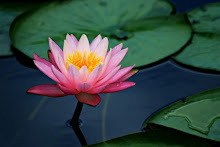 Am gasit un documentar excelent pe youtube, in 10 parti, despre Kashmir.
Am gasit un documentar excelent pe youtube, in 10 parti, despre Kashmir.Multe teme sunt abordate: monumente, viermi de matase, safran, ceaiul kashmirian, boats, pipa, Shalimar (Garden of Love), materiale/ shaluri, vopsire, patterns, papier maché, design, carpet weavers, covoare.
Absolut magnific, ca sa nu mai vorbesc de peisaje.
Absolut magnific, ca sa nu mai vorbesc de peisaje.

11 comments:
Thanks for sharing!
Always a pleasure!:)
Am inceput sa ma uit la documentarul despre Kashmir in dimineata aceasta si dupa vizionarea primei parti sunt putin nemultumit.
La minutul 3:30 din prima parte povestitorul spune ca:
The "Shah...dar" mosque was built in 1395 on the bank of the Jalam(??) river.
It was named for the holly man that enabled milions of hidus to peacefully convert to Islam.Hmmmm, ce mi-a atras atentia a fost cifra foarte mare de convertiti. Unde naiba se convertesc atat de multi intr-un interval scurt si peacefully?
Se pare ca in perioada contructiei moscheei Kasmirul era condus de unul dintre cei mai intoleranti si cruzi sultani.
Several Kashmiri rulers, such as Sultan Zain-ul-Abidin, were tolerant of all religions in a manner comparable to Akbar. However, several Muslim rulers of Kashmir were intolerant to other religions. Sultãn Sikandar Butshikan of Kashmir (AD 1389-1413) and his (former Brahmin) minister Saif ud-Din are often considered the worst of these. Historians have recorded many of his atrocities. The Tarikh-i-Firishta records that Sikandar persecuted the Hindus and issued orders proscribing the residence of any other than Muslims in Kashmir. He also ordered the breaking of all "golden and silver images".Sursa : Wikipedia - History of KashmirPS. Stiu ca wikipedia nu este o sursa reliable de informatie, dar asta e ce am acum la indemana.
Hmmm...
Va sa zica, intotdeauna trebuie verificate informatiile...Ce-ti e cu Americanii astia. Nasol daca nu sunt in stare sa faca ceva ca lumea pe o chestie care chiar nu intra in vreo profunzime sa zici ca te-ai pirdut pe drum. Or fi bagat in documentar ce li s-a spus cand au fost acolo fara sa verifice.
Pe mine m-au fascinat in special artizanatele: sa-i vad pe oamenii aia lucrand, tesand, facand ceai..:)
Merci pentru info, e bine de stiut.
Conversii de bunavoie cu milioanele nu prea cred ca exista.
Poate ne scoate din dilema cinava mai experimentat. O sa-i dau un mail lui Mrinal Kaul. El trebuie sa stie.
Da, m-ar mira sa se fi facut de buna voie:))
Pe de alta parte, foarte multa lume s-a convertit la Islam ca sa scape de sistemul de caste.. printre ei o groaza de yoghini Nath..
Poate ca e un melanj de amandoua: persecutie si bunavointa..? (nu neaparat in aceeasi perioada:) )
cred ca e putin nedreapta acuzatia ta "ce ti-e cu Americanii astia"... :) iti garantez ca neverificarea informatiilor nu tine de nationalitate, ci mai degraba de (lipsa de) profesionalism. Se intampla si in Romania, si in Franta, si in Rusia, si in Germania, si unde vrei tu.
:)))
Daga mea, dar e bine stiut ca americanii sunt inculti:))))))))))))
Ce le tot iei aparatrea?!!! Traitor!
Unde ai vazut tu lipsa de profestionalism in Romania?!
bweehehehehhee
:)))))))) asa e, ce e bine stiut sa ramana bine stiut, ce atata verificat informatii si verificat teorii.. :P
Curat rationament!:)))
Subscriu si eu la el ca doar e demn de studii superioare!!!:))))
Se pare ca indoielile mele, de aceasta data, u fost nejustificate. Dupa o lunga asteptare, astazi am primit un raspuns din Kashmir pe subiectul convertirii la Islam. Redau in continuare raspunsul pe care l-am primit de la Mrinal Kaul:
Anyhow, I have seen the nice video you very kindly sent to me and I think I would agree with what the script has to say to a certain extant. King Rinchan Shah, the first Islamic ruler of Kashmir, converted to Islam under the influence of Bulbul Shah, who was a sufi of high order. Rinchan first wanted to convert into the faith of his country men i.e., Hinduism, but the then Pandits did not allow him to do that 'simply because the cast of his birth was boubtful'.
Of course there were political, social and economical reasons also responsible for the entry of Islam in Kashmir and I think it is very important to take a wholistic view of the situations.
Post a Comment